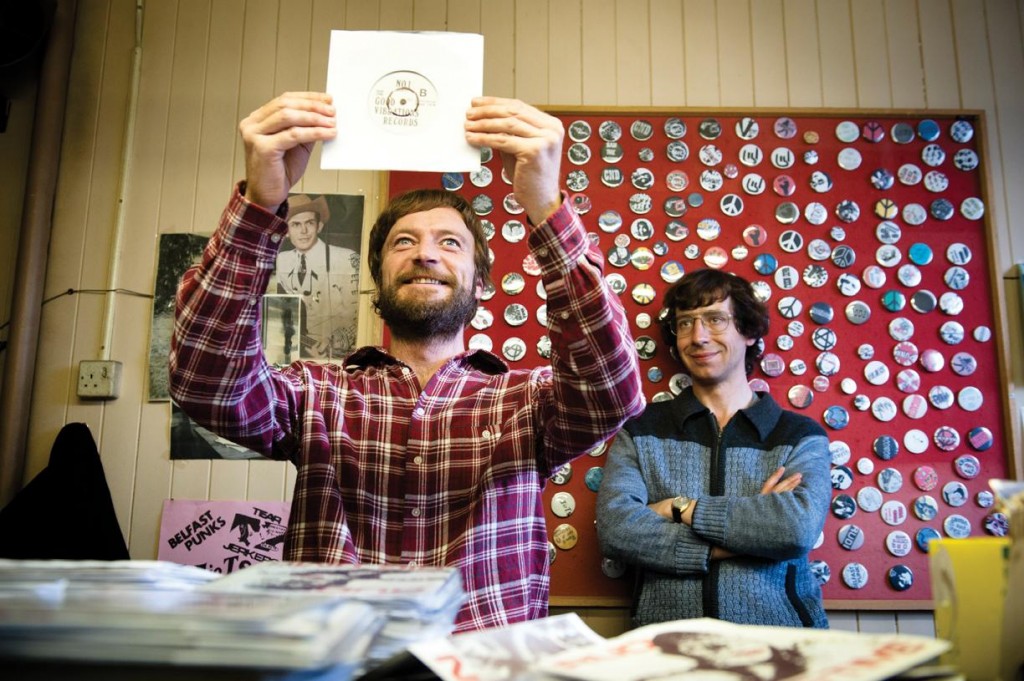Good Vibrations Review
Music biopics so often get it drastically wrong, from over enthusiastic hagiography to a complete lack of understanding of the subject of the film, the missteps often quickly mount up. Significant blunders in these films are far more common than redeeming qualities but, thankfully, Good Vibrations is one of the better ones.
Focusing not on a band or even really a particular musical movement – the focus is too narrow for this to be considered a film in which the Irish punk scene is the subject – Good Vibrations is about one man, Terri Hooley. Not perhaps that well-known to many Hooley was an incredibly important figure for a short amount of time in a small area, but the seeds of what he sowed had far wider implications.
The son of a socialist candidate, Hooley, played here with winning bombast by Richard Dormer, is a dreamer from a young age and all he seems to care about is music. As Hooley gets older he loses none of the enthusiasm or optimistic dreaming that is beaten out of most by life experiences and, after borrowing £40 from his wife Ruth (Jodie Whittaker) and re-mortgaging their house, she’s only aware of the former, Hooley opens a record shop named Good Vibrations.
Upon discovering the Irish punk scene, in a revelatory sequence that is just winsome enough to not feel too clichéd, Hooley decides that he is going to start releasing music rather than just selling it. Rudi and the Outcasts are his main signings, on the newly founded Good Vibrations records, but after stumbling across The Undertones he ends up with a future hit on his hands and a song that John Peel helped make history of.
What those behind Good Vibrations, the directing duo of Lisa Barros D’Sa and Glenn Leyburn and co-writer Colin Carberry, get so right is what this all actually means, beyond just some rather catchy music. There is a clear understanding throughout of how important music can be, the power of art to change lives on a personal level, as it does with Hooley, and on a wider social and political scale, seen here in the effect of the punk scene on Belfast and beyond.
These implications are deftly handled throughout, in particular with the sensitive use of archival footage of the Troubles in Northern Ireland, but the film never gets bogged down in soap-boxing or grand statements. Carried along by the good humour in Dormer’s performance the film is well-paced and enjoyable but there’s a lot more to ruminate on than might at first be apparent.
Barros D’Sa and Leyburn also do an excellent job of keeping the biopic interesting without slipping into too many overly familiar tropes. There are times when their stylistic approach falters though, leading to a few sequences that throw you out of the film rather abruptly.
There will undoubtedly be complaints from some about the lack of scope to the story, bands like Stiff Little Fingers only get a look in on the soundtrack, and the slightly iffy recreations, seeing a John Peel impersonation doesn’t work quite as well as hearing one, but Good Vibrations has a lot to offer and for every small thing it gets a wrong it gets more ten more right.
